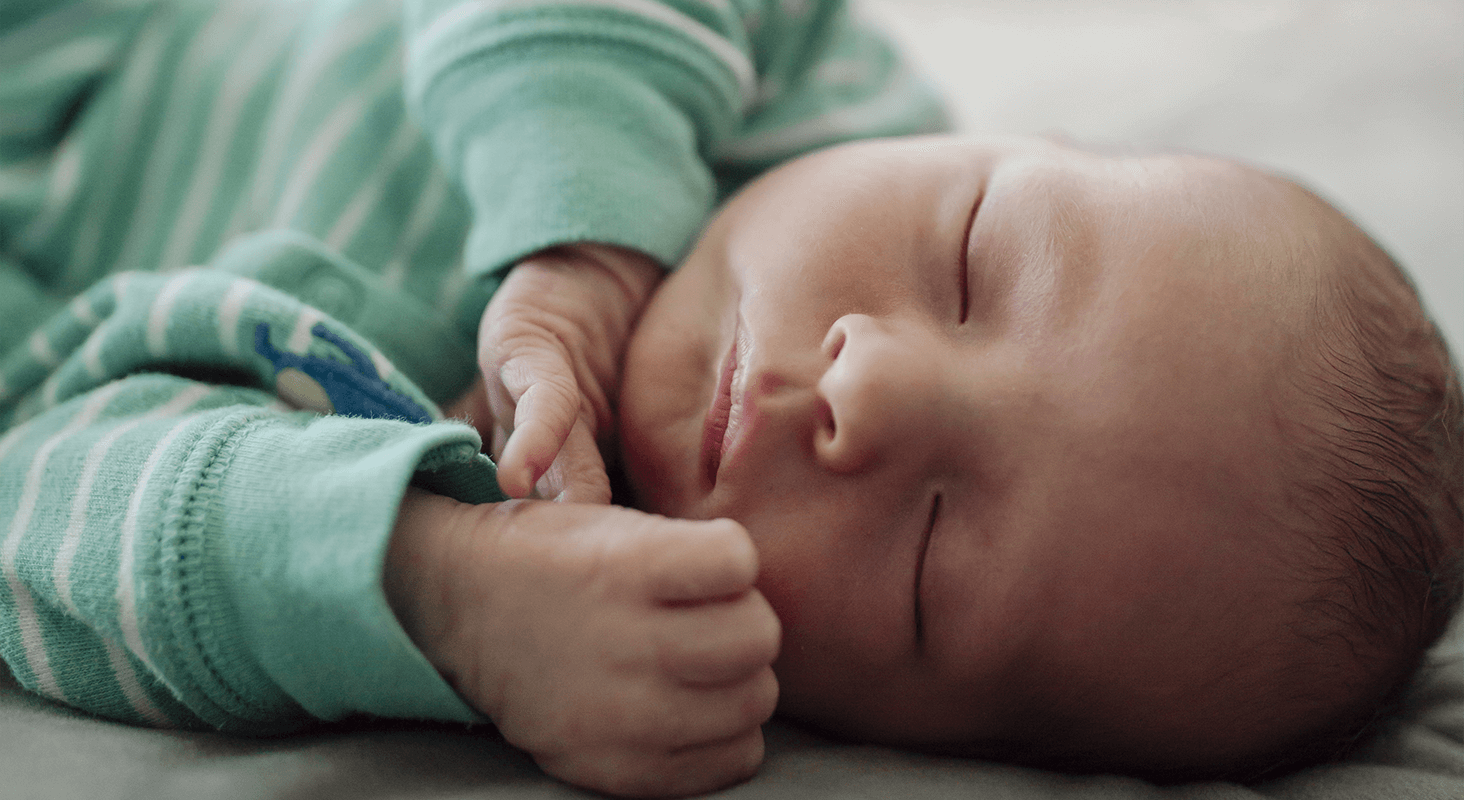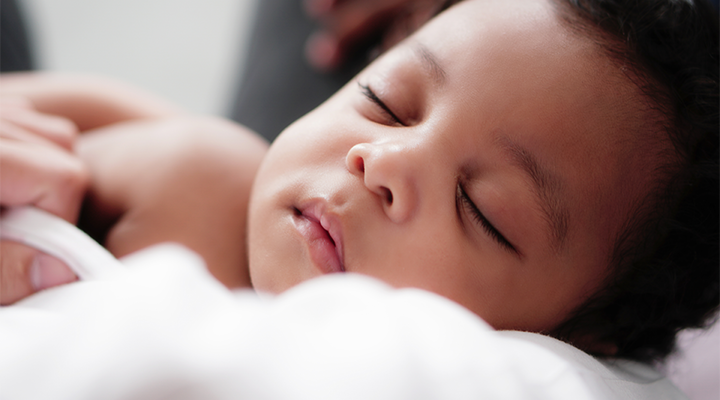Infant Sleep Patterns
Every new parent knows their sleep will be disrupted when a baby comes home, but many parents want to know what type of schedule they can expect and how they can help their babies be better sleepers. Here we’ll cover sleep basics every parent should know.
How much will my newborn sleep?
A lot! Most newborns sleep 16-18 hours a day, but in very short stretches because they need to eat frequently. During the first few weeks of life, babies typically sleep for two to three hours, wake up to feed for an hour, and then go back to sleep.
This can be hard for parents. Remember, this is only temporary! Newborns need to eat many times a day and are not ready to be on a schedule. Babies don't know the difference between day and night. Unfortunately for parents, they are often more alert at night. Try making nighttime more calm and quiet and daytime more interactive.
In the early weeks when you're not getting much sleep, you may want to reach out to others for support:
- Do you have friends or family who can run errands, cook meals, do laundry, or take care of your other children?
- If you have a partner and are pumping or formula feeding, are there times when they can take over feeds so you can get some rest?
- If possible, sleep when your baby sleeps!

 TO KEEP IN MIND
TO KEEP IN MIND
Who can lend a hand with errands, cooking, and cleaning when you need some rest?
If you have a partner living with you, how can you support each other's sleep?
When will my baby sleep through the night?
Usually around 6 months, but every baby is different!
Some time between 2 and 4 months, most babies start to stay awake longer during the day and sleep for longer stretches during the night. Most babies (but not all) will skip one feeding and sleep for about four hours straight when they are between 2 to 4 months.
When your baby is around 4 months old, you can start putting your baby to bed when they are drowsy but not all the way asleep. This teaches them how to fall asleep on their own. When babies are able to fall asleep on their own, they are more likely to go back to sleep without your help if they wake up in the middle of the night.
By 6 months, about two-thirds of babies will sleep “through the night,” which means skipping two feeds and sleeping six to eight hours at a time.
How do I keep my baby safe while sleeping?

Always place your baby on their back—not their side or stomach—to sleep.

Make sure your baby’s room is not too hot or too cold (if it is chilly, your baby can wear a sleep sack).

Use a bassinet or crib with a firm surface and tight-fitted sheet for sleep (not a car seat, swing, bouncy seat, stroller, or baby pillow).

Do not put anything in your baby’s bed (no extra sheets, loose blankets, pillows, bumpers, toys).

Do not share a bed with your baby.

Keep your baby’s crib away from wires and windows.
Want to keep your baby safe while they sleep? Remember the ABCs!
- Alone: No blankets, toys, bumpers, or stuffed animals.
- Back: Always put your baby down on their back, not their side or stomach.
- Crib: The safest place for your baby to sleep is in a crib or bassinet, not in bed with you.
Additional Reading
Going Home With Baby
Here's what to know about the first few days after coming home from the hospital.
Crying
Understand why babies cry, how you can soothe them, and when to call for extra help.
Infant Sleep Safety
Learn about how to keep your baby safe when they are sleeping.
